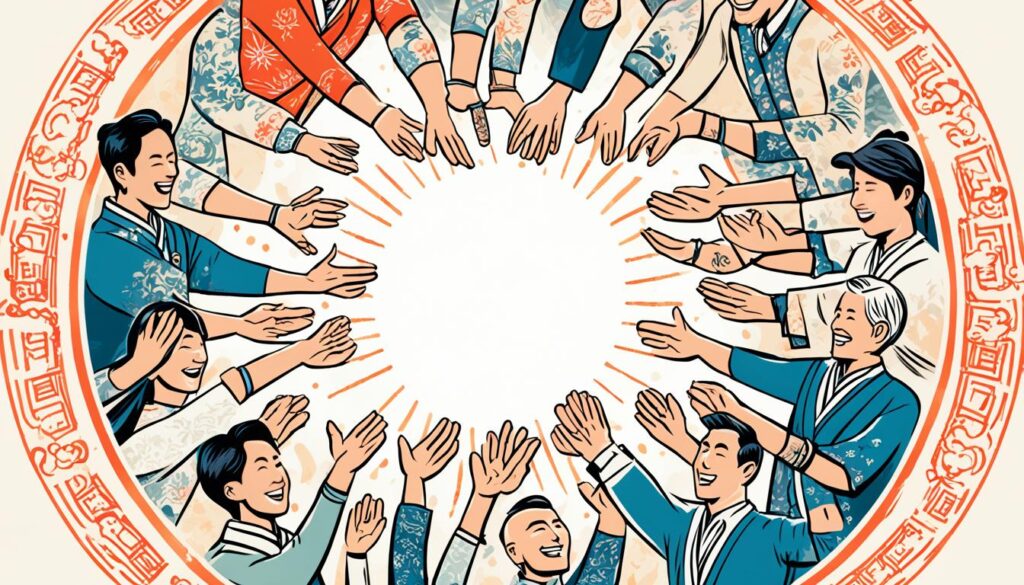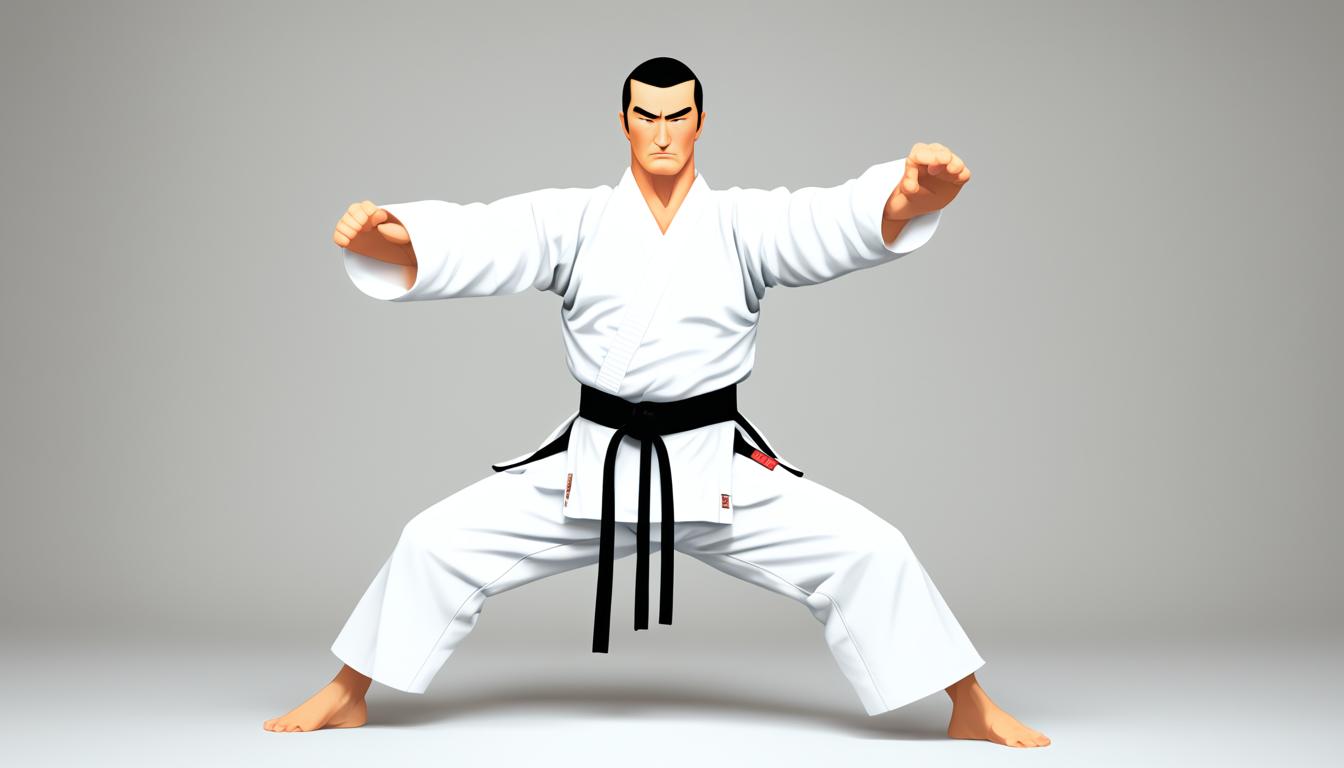In Japanese culture, the term “uke” holds multiple meanings and is deeply rooted in martial arts and relationships. To fully grasp its significance, we need to explore its various contexts and applications. From its literal translation to its metaphorical implications, “uke” encompasses the concept of receiving, adapting, and understanding.
The Meaning of Uke in Martial Arts
In martial arts, the term “uke” has various interpretations. While it is commonly associated with blocking techniques, a deeper understanding reveals that uke is more than just blocking. In fact, it emphasizes the art of receiving and redirecting an opponent’s attack, rather than directly opposing it. Derived from the Japanese word “ukeru,” which means to receive or accept, uke highlights the importance of fluidity and adaptability in martial arts.
Unlike traditional blocking, uke focuses on receiving the energy of the attack and using it to one’s advantage. It requires practitioners to be flexible and responsive, allowing them to seamlessly blend with the opponent’s movements. This concept of uke encourages practitioners to flow with the momentum of the attack, redirecting it with precision and control.
Additionally, uke can also refer to the person who receives a technique or executes a defensive movement. The role of uke may vary depending on the martial art, but it typically involves cultivating the ability to perceive and respond to an opponent’s actions.
By embodying the concept of uke, martial artists develop a deeper sense of awareness, adaptability, and responsiveness. It serves as a reminder that true mastery of martial arts lies in the ability to receive, adapt, and redirect energy rather than relying solely on forceful resistance.
The Metaphorical Significance of Uke in Relationships
The concept of uke extends beyond martial arts and can be seen as a metaphor for relationships. Just as uke in martial arts is about receiving and adapting to an attack, uke in relationships is about being open to receiving and understanding the other person’s perspective. It is about being a listener, accepting and supporting the other person.
In some martial arts, uke and tori are used to describe the roles of the person executing a technique and the person receiving it. The relationship between uke and tori is based on trust, communication, and mutual understanding. The uke willingly receives the technique from the tori, allowing the tori to practice and improve their skills. This dynamic highlights the importance of collaboration and empathy in relationships.
There is also a parallel between uke as a role in martial arts and the concept of servant leadership. In servant leadership, leaders prioritize the growth and well-being of their team members, actively listening and supporting them. Similarly, as a metaphor in relationships, uke encourages individuals to be selfless, understanding, and responsive to the needs of their partner.
By embodying the qualities of uke in relationships, you create an environment of trust, respect, and mutual support. You become a partner who is receptive, adaptable, and willing to understand the other person’s perspective. This can foster healthy communication, empathy, and a deeper connection in your relationships.
Uke and Tori in Relationships
In martial arts, the relationship between uke and tori is a collaborative and symbiotic one. The tori relies on the uke to practice their techniques, while the uke trusts the tori to execute those techniques safely. Similarly, in relationships, uke and tori can represent different roles or dynamics within a partnership, based on mutual trust, communication, and support. This dynamic allows couples to learn, grow, and evolve together.
Ukemi: The Art of Falling Safely
Ukemi is a fundamental aspect of martial arts, particularly in disciplines like judo and aikido. Derived from the Japanese word “ukeru,” which means to receive, ukemi is the art of safely falling or rolling to avoid injury when faced with an attack or technique. It requires skill, body control, and a willingness to surrender to the technique.
Ukemi goes beyond physical techniques; it represents a metaphor for life. By practicing ukemi, you learn to be resilient and adaptable, embracing the process of receiving and transforming energy. Rather than resisting or avoiding challenges, ukemi teaches you to accept and learn from them.
Similar to how you receive an attack in martial arts, ukemi teaches you to receive and adapt to the experiences life throws at you. Just as you fall gracefully in martial arts, you learn to fall gracefully in life, accepting setbacks and using them as opportunities to grow and learn.
Ukemi is more than a physical skill; it is a mindset. It teaches you to let go of the fear of falling and embrace the unknown. By cultivating a mindset of ukemi, you develop the ability to receive and adapt to new situations, making you more resilient and open to growth.
Whether you are practicing martial arts or facing the challenges of everyday life, ukemi offers valuable lessons. It encourages you to be adaptable, to embrace the process of receiving, and to transform setbacks into stepping stones towards personal development. By mastering the art of falling safely, you gain not only physical skills but also a resilient mindset that can benefit you in all aspects of life.
Uke as a Form of Leadership

In martial arts, the role of uke goes beyond receiving techniques. A skilled uke can also embody the qualities of a teacher and leader, guiding others to enhance their skills and reach their full potential. By leveraging their deep understanding of techniques and strong communication skills, a proficient uke effectively conveys knowledge and provides valuable feedback to those executing the techniques.
This form of leadership showcases the essence of servant leadership, where the focus is on fostering the growth and well-being of team members. As a role model, the uke inspires others to develop their abilities, encouraging a culture of continuous improvement.
Beyond the realm of martial arts, the leadership role of uke demonstrates the importance of effective communication, empathetic guidance, and the ability to adapt to different learning styles. By embracing the responsibility of the uke, aspiring leaders can cultivate an environment that nurtures growth, innovation, and collaboration.
The Complexity and Cultural Significance of Uke
The concept of uke in Japanese culture and martial arts is incredibly complex and holds significant cultural significance. It goes beyond the mere physical act of blocking or receiving techniques and extends into a deeper understanding of receiving and adapting in relationships and life. Uke emphasizes the importance of flexibility, adaptability, and the willingness to listen and understand, making it applicable beyond the context of martial arts.
Uke embodies the essence of Japanese culture, reflecting values such as humility, respect, and harmony. By embracing the concept of uke, you can gain a deeper appreciation for the Japanese way of life and relationships. It teaches us the importance of being open to receiving and acknowledging different perspectives, fostering a sense of connection and unity.
In martial arts, uke plays a vital role in the dynamic between practitioners. As an uke, you not only receive techniques but also contribute to the growth and development of the tori, the person executing the technique. This relationship is built on trust, communication, and mutual understanding, creating a supportive and collaborative environment for both parties.
By embracing the complexity and cultural significance of uke, you can enhance your interactions with others and approach challenges in life with a more open mindset. It allows you to incorporate the values of flexibility, adaptability, and understanding into your everyday life, helping you navigate various situations and relationships more effectively.

